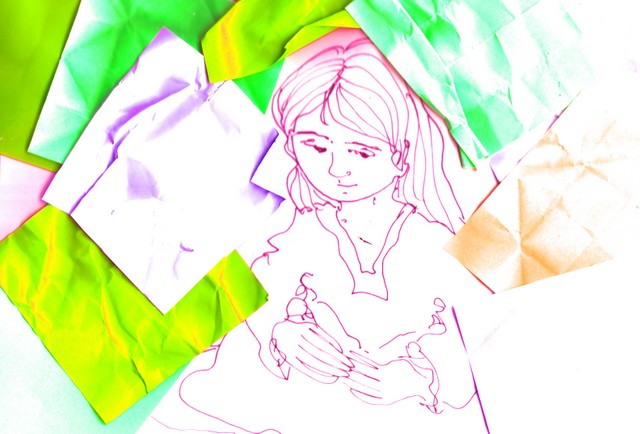One Mindful Step at a Time
 Have you ever driven for miles on “automatic pilot” without really being aware of what you are doing? This state of being “miles away” without knowing it is common in this busy, frenetic world we live in. Some might call it being in a state of “mindlessness,” where automatic pilot is boss. For parents, juggling the competing demands of daily life and the stresses of bringing up children in this complex world is one of the most difficult jobs there is. When our inner resources are depleted we have to discover new ways of finding support and energy to nourish our children. This is where Mindfulness makes an entrance.
Have you ever driven for miles on “automatic pilot” without really being aware of what you are doing? This state of being “miles away” without knowing it is common in this busy, frenetic world we live in. Some might call it being in a state of “mindlessness,” where automatic pilot is boss. For parents, juggling the competing demands of daily life and the stresses of bringing up children in this complex world is one of the most difficult jobs there is. When our inner resources are depleted we have to discover new ways of finding support and energy to nourish our children. This is where Mindfulness makes an entrance.
Mindfulness is simply a practical way of paying attention to thoughts, physical sensations, sights, sounds, smells – anything we might not usually notice. The actual skills are simple, but because it is so different to the way our minds normally behave, it takes a lot of practice. Often our heads are busy living in either the past (going over something we have just done) or busy in the future (thinking about what we need to do).
The power of mindfulness exists in making a choice to focus our attention on the present moment, to what is happening right now. Then we can respond to what is actually happening, as opposed to reacting to whatever is going on in our anxious, frustrated and overactive brains. On automatic pilot, we are more likely to have our “buttons pressed.” Events around us and thoughts, feelings and sensations can trigger old habits of thinking and reacting that are often unhelpful. Mindfulness gives us a way of checking in with ourselves (and our kids) and then deciding where to go from there.
Below are some informal ways of being more present and connected in our daily lives. In starting to develop the habit of paying attention often and in small ways, we find that it is easier to stay focused when our kids become a little demanding and start to “press those buttons.” Remember that the key to Mindfulness is to practice it when it’s easy, so that we can actually use those skills to keep calm and grounded when life gets really chaotic.
Connect to the breath – close your eyes and see if you can get a sense of your breath. Where do you feel the breath in the body? Place a hand on your belly and notice it rising and falling with each breath in and out. Allow yourself the chance to see how your breathing is – it will give you a clue to how you are feeling. The breath can also let us know how others are reacting to life’s experiences and give us a sense of their emotions and feelings. So slowing down to connect to others’ breathing can give us insights into their world that we might otherwise miss.
Being a little more mindful can help us to see things we might previously have missed and to sometimes take important steps that we might not have otherwise taken. So imagine the impact on our lives and our children if we take just a few steps to tune into our inner experience, to pause and notice what is going on, and become a little more skilful in the way we think, respond and behave.
For me Mindfulness hones an attentive sensitivity to the present moment that helps me keep my heart at least a tiny bit more open, and my mind at least a tiny bit clear, so that I have a chance to see my children for who they are, to remember to give them what it is they most need from me, and to make plenty of room for them to find their own ways to be in the world. Jon Kabat-Zinn, Everyday Blessings: The Inner Work of Mindful Parenting (p.5).
For those who would like to read more:
- 10 Mindful Minutes: Giving Our Children – and Ourselves – the Skills to Reduce Stress and Anxiety for Healthier, Happier Lives, by Goldie Hawn and Wendy Holden
- Mindfulness: A Practical Guide to Finding Peace in a Frantic World, by Professor Mark Williams and Dr Danny Penman
For those who’d like to watch some talks:
- 10 Mindful Minutes: Andy Puddicombe: All It Takes Is 10 Mindful Minutes
- Mindfulness and Parenting: Mary Ann Christie Burnside at TEDxWaldenPond
- Mindfulness in Schools: Richard Burnett at TedxWhitechapel
By Bella Glover
Bella Glover is a British qualified cognitive behavioural therapist and Mindfulness teacher. She relocated to Switzerland in early 2013, where she set up her own company called Beingwell (www.beingwell.ch). Bella has a private therapy practice in Winterthur and Zurich, and also runs Mindfulness courses and workshops for individuals and businesses.
If you would like to learn more about Bella and the mindfulness courses and workshops or individual cognitive behavioural therapy she offers, please go to: www.beingwell.ch for further information.
Illustration by Albina Nogueira
Albina Nogueira has been a primary school teacher since 1992, and a writer and illustrator since 2006. She currently lives in Switzerland, but her homeland is Portugal. She is also the author of Letters to Grandparents and Hairdresser. To find out more, like her on Facebook or see her books in Amazon.



